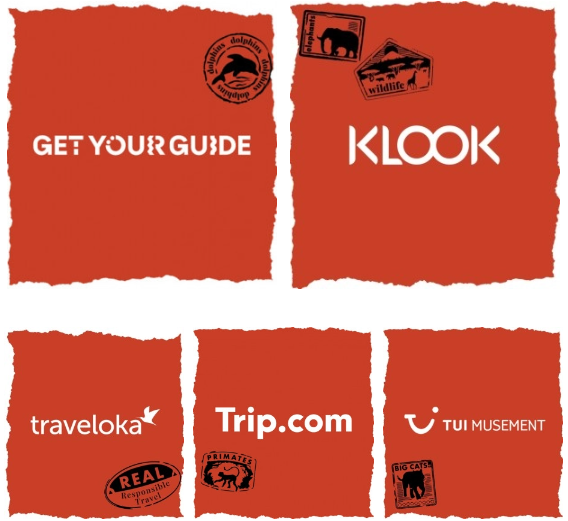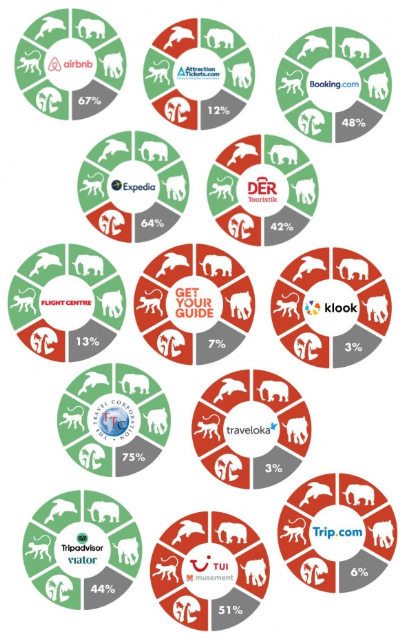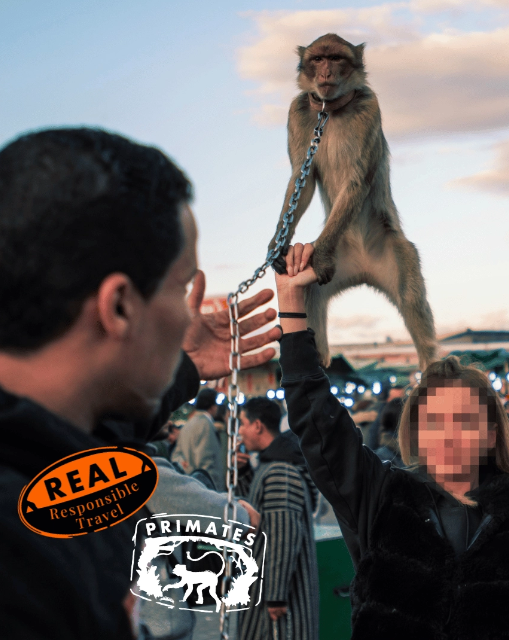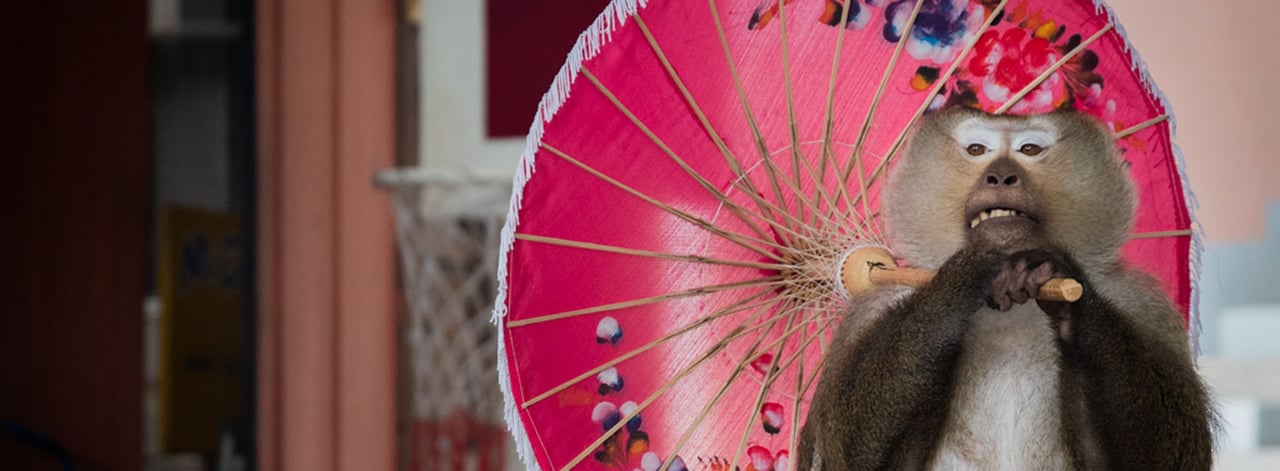The Real Responsible Traveller reviews 13 global leaders in the tourism industry on their animal policies and wildlife offers: uncovering the progress the travel industry is making to protect wild animals, and where work is still needed.
Five of the world’s leading travel companies are severely failing wildlife. These companies, who are among the most influential businesses in the global tourism industry, are still selling harmful exploitative wildlife experiences.
Take Action
You can help show Get Your Guide, Klook, Traveloka, Trip.com and TUI Musement that the public won’t stand for sustained animal suffering in the tourism industry.
How the report assesses travel companies
By relying largely on public information, ‘The Real Responsible Traveller International’ paints a fair, unbiased picture of the travel industry’s transparency and progress towards becoming wildlife friendly.
Wildlife Icons
Researchers collected information from the public websites of each of the companies in this assessment, to determine which companies are selling harmful experiences at captive wildlife venues.
We chose to focus on four species categories - dolphins, elephants, primates, and big cats, as well as a general section encompassing all other wild animal species. These animals were chosen due to their complex ecological, social and behavioural needs, their high levels of sentience and their common use in tourism entertainment attractions globally.
Company % Scores
This research component, conducted by independent research partner the University of Surrey, assigns companies a percentage score using comprehensive methodology that assesses companies across four key areas:
- Commitment: Public availability and quality of published animal welfare policies and how applicable they are to all their brands.
- Targets and performance: Availability and scope of published time-bound targets and reports on progress towards meeting animal welfare commitments.
- Changing industry supply: Availability and quality of engagement with suppliers and the overall industry, to implement wildlife friendly changes.
- Changing consumer demand: Availability and quality of educational animal welfare content and tools to empower consumers to make wildlife-friendly travel choices

Companies can change the practices of the industry
Airbnb, Booking.com and The Travel Corporation have proactively removed captive wildlife entertainment. Tripadvisor/Viator have removed ticket sales for captive wild animal entertainment, but continue to promote exploitative wildlife tourism through images and reviews on their website.
All four of these companies have invited advice from World Animal Protection to improve their commitment to rejecting animal exploitation and wildlife friendly tourism and these scores are a testament to the steps these companies have already taken to protect animals.

Responsible tourism is the future
Responsible tourism is an increasingly popular term in the travel industry, as well as being increasingly important to travellers. The term “responsible tourism” should indicate that all involved - companies and travellers - are taking responsibility for their travel activity.
Transparency between companies and consumers encourages trust. Taking a strong stance against animal cruelty gives companies a strong market position and builds their brand as a responsible leader in travel.
Travel companies are accountable for animal suffering
Worldwide, wild animals are taken from the wild or bred in captivity to be used for entertainment in the tourism industry. Captive wildlife tourism often requires the removal of wild animals from their natural habitat and this captivity offers no genuine benefit to the conservation of the species.
Travel companies need robust animal welfare policies that protect wildlife at tourist attractions to which they sell tickets and promote. Travel companies must educate and empower customers to make animal-friendly travel decisions. This involves ‘choice editing’, the process of controlling or limiting the choices available to consumers to reach an end goal, in this case, removing cruel wildlife tourism activities and promoting wildlife-friendly.

